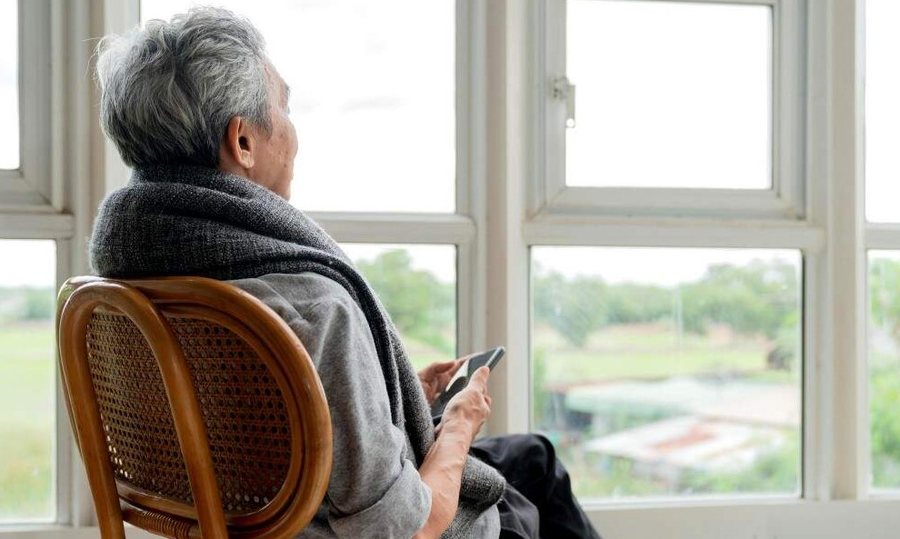
Every year in Kosovo, dozens of families face the challenge of multiple sclerosis.
This disease, also known as multiple sclerosis, damages the protective covering of the nerves.
It can cause numbness, weakness, difficulty walking, changes in vision, and other symptoms, which, over time, can become daily obstacles to a normal life.
For Bekim, it all started suddenly. He was only 27 years old, working as a waiter, when in 2015 he received the diagnosis that would change his life forever, reports A2.
"Initially, I had problems with my leg - pain and a tightness that wouldn't go away," he recalls in a story for Radio Free Europe.
Physical concerns were accompanied by deep insecurity.
It took many checkups, visits to orthopedists, vascular doctors, and other specialists, but no one was able to find the cause of the pain that exhausted him every day.
After many tests, one of the doctors sent him to a neurologist.
"That's where the first suspicions about multiple sclerosis began," says Bekimi - whose real identity is known to the REL editorial team.
And when the diagnosis was confirmed, it felt like everything collapsed on him.
"The moment of diagnosis was very difficult. I even thought about divorcing my wife, whom I had just married. I was very, very sad," he says, recalling the frightening beginnings of the disease.
After a difficult period, he managed to stabilize. For several years with therapy, he felt good and the disease was under control. Until 2021, when he was vaccinated against COVID-19.
"The moment I got the vaccine, I was never the same again. I had forgotten that I had multiple sclerosis before," he says.
Today, Bekim has serious difficulty walking without the help of another person.
Although scientific studies have not found any direct link between vaccination and multiple sclerosis, for him the personal experience has had profound consequences.
"The only thing I couldn't do before the vaccination was run," says the 37-year-old today, who is unable to work and remains dependent on family members for many needs.
Trends and patient profiling
Among recent years in Kosovo, 2023 stood out as the year with the most new cases of multiple sclerosis - a total of 76.
But the concern is great this year as well: in the first half of 2025 alone, 41 new cases were recorded - a figure that approaches last year's total of 58.
According to health professionals, multiple sclerosis can occur at any age, but is most often diagnosed in people between the ages of 20 and 40.
Also, women are more often affected by this disease than men.
Causes and symptoms of multiple sclerosis
The causes of multiple sclerosis are not precisely known.
The disease is considered to be related to the immune system attacking its own tissues.
"We are dealing with numerous hypotheses, which explain multiple sclerosis to a certain extent, but are not enough to provide an overall picture," Blerim Myftiu, a neurologist at the Neurology Clinic of the University Clinical Center of Kosovo (UCCK), tells Radio Free Europe.
He emphasizes that interactions between genes and environmental factors can increase the risk for this disease, as can a family history of it.
He says that symptoms vary from person to person, as they depend on the severity of nerve damage.
"The most classic symptom is inflammation of the optic nerve or optic neuritis. Then come motor or sensory problems, loss of sensation or numbness of one part of the body, dizziness, problems with urination, and others," explains Muftiu.
Hundreds of patients in one center
At the clinic where he works, over 500 patients with multiple sclerosis currently receive therapy.
The types of drugs used are on the essential list, which means they are covered by the state and provided free of charge.
According to neurologist Muftiu, therapy in Kosovo is comparable to that used in many developed European countries.
But the big challenge lies in access.
All patients affected by this disease in Kosovo must go to UCCK to receive therapy, as it is not offered in regional hospitals.
This places a heavy burden on the institution, especially when considering that UCCK is the only center where other complex treatments are also offered, such as chemotherapy or neurological interventions.
As a result, patients often face long waiting lines or a lack of doctors.
However, neurologist Muftiu emphasizes that it is essential that no symptom be ignored - even persistent fatigue or any strange sensations in the body.
According to him, early diagnosis significantly increases the chance of successful management of the disease.
Although multiple sclerosis has no cure, proper treatment can help speed up recovery from attacks, slow the progression of the disease, and improve the patient's quality of life.
According to the World Health Organization, it is estimated that over 1.8 million people worldwide have multiple sclerosis.
Even though he now walks with the help of others, Bekim says he has never lost his will. On the contrary, he has turned his experience into a call for awareness and caution.
"Do sports activities, walk, run, swim, because these things are very important," concludes the father of two./ REL (A2 Televizion)











